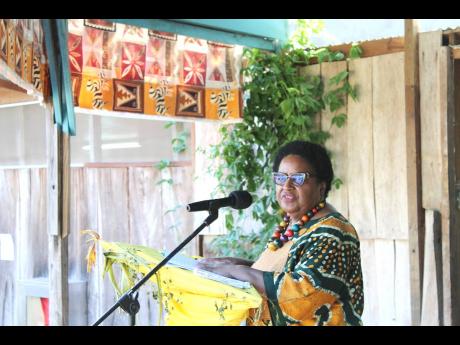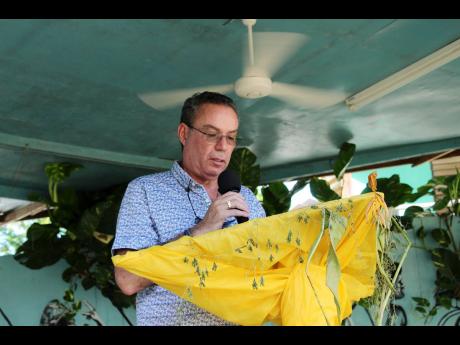Reconciliation theme of Int’l Charles Town Maroon Conference and Festival
Member of Parliament for West Portland Daryl Vaz has applauded the efforts of the organisers of the annual International Charles Town Maroon Conference and Festival, noting its cultural, historical and tourism value to the parish.
The event was held from Wednesday, June 21, to Sunday, June 25.
Vaz committed his continued support of the event, now in its 15th year, and called on residents to be ambassadors of peace.
He told the stakeholders, “I applaud your passions and efforts in preserving Jamaica’s early and rich heritage and culture that includes the great legacy of our national heroine, the Right Excellent Nanny of the Maroons.”
Vaz, who spoke on Sunday, dubbed ‘Victory Day’, commended the theme ‘Reconciliation: Justice, healing, unity’, remarking: “I have no doubt that the theme … was wisely chosen as it reflects much of what is needed in our society to make it more wholesome.”
He lamented the level of violence in society, surmising that “some of it stems from not having reconciled our differences with each other from past generations, as with family disputes. And if left unchecked, these conflicts escalate and manifest into anger and violent acts. We know that unity can bring about healing … I call upon you all who are here to make it your duty to be ambassadors of peace, love, goodwill and respect for the betterment of your communities ...”.
CONSTRUCTIVE SPACE
Victory Day celebrates the Windwards Maroons triumph over the British forces, who spent decades pursuing the Maroons, who would, however, use their knowledge of the geography of the region to outwit and defeat them.
But, with the victory and ‘freedom’ came factions, disunity, mistrust and pain, in addition to the trauma of slavery and post-Emancipation injustices. Up to now, there are unresolved generational issues, thus the relevance of the theme.
Former Political Ombudsman and founding Chief Executive Officer of the Dispute Resolution Foundation, Parchment Brown, in her role as guest speaker, remarked that while the theme was a “heavy topic”, it was timely and “most appropriate and well-aligned” with her life’s work.
“...We cannot assume that there is clarity on concerns or the issues and experiences that call for reconciliation”, and that “there may even be less clarity on the methods to be used” to achieve reconciliation.
Parchment Brown broached several issues, including the long-standing complaint that the Jamaican Constitution and laws are silent on Maroons “rights or status”.
She said that for reconciliation to be achieved, there has to be a “constructive space” and process which include affirmation, communication and cooperation on a platform of respect.
“This process needs to be facilitated by skilled, neutral and confidential parties. This is important for trust and sustainability of outcomes,” Parchment Brown noted.
She referenced United Nations Secretary General António Guterres’ description of reconciliation: “Helping people to repair failures caused by an absence of trust between state and people.”
The process, she pressed, should be inclusive, locally owned, and based in social and economic reforms. It involves “stitching together a new social fabric”, bringing together alienated communities, and the establishment of confidence in institutions. Yet, there is the element of fear, which she also addressed.
“We need not fear reconciliation processes. Yes, well structured, they will bring diverse voices and interests to the table. Some may be extremists, opening new areas; some may be bitter; others may feel under attack; some may fear loss of control, and prefer the known status quo over the unknown risks … I know that fears must be acknowledged and understood in moving forward to create the best set of forums and actions to identify the concerns and the strategies to address them,” she said.
“I am truly honoured to be with you today, and stand ready to assist in the designing of fixed processes towards reconciliation … . Reconciliation is a process, not an event or a straight line. We will be discouraged and inspired, but resources are available … .”


